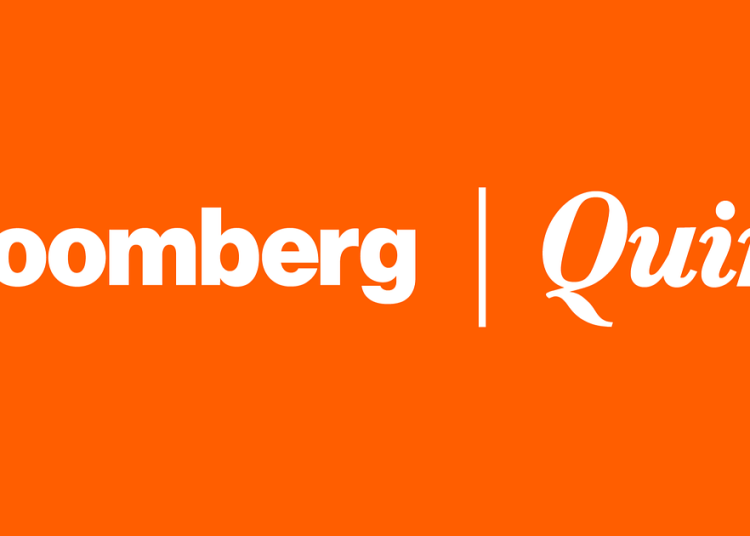(Bloomberg) — Martha Stewart and Emeril Lagasse, two icons of cable TV, are taking the leap to the internet with the Roku Channel.
Roku Inc., which owns the network, has licensed the rights to reruns of shows hosted by Lagasse, Stewart and chef Christopher Kimball—more than 3,000 episodes in all—and is commissioning new projects as well. Stewart will host three programs, company executives said in interviews, including one in which she gardens at her 153-acre farm, while Lagasse will host a couple, including one dedicated to food at tailgate parties.
Roku, best known for making set-top boxes and devices people use to stream Netflix and YouTube, ordered the food shows as part of a larger slate of original programming that it will unveil Tuesday at a presentation for advertisers in New York. The company plans to make at least 25 original programs over the next year, spanning reality TV, scripted series and movies.
“In fairly short order, it’s going to be a Roku original almost every week,” said David Eilenberg, the head of original programming for Roku.
Roku makes most of its money by selling subscriptions and advertising for streaming services on its platform. The company is starting to make shows that compete for attention and advertising dollars with those same services. Management believes these series will create additional, lucrative advertising inventory and help validate the quality of Roku’s programming in the eyes of marketers.
Advertising sales for connected TV—online video watched on television sets—are expected to eclipse $20 billion this year. It’s been one of the fastest-growing categories as more viewers shift to the web from cable or satellite service.
Roku needs Wall Street to believe it can sustain its sales growth and differentiate itself from competitors. Shares of the company have plummeted 55% this year, erasing two years of gains. Once worth more than $60 billion, the company is now valued at around $14 billion. Investors have grown skeptical about the economics of video streaming, and worry about Roku’s ability to compete in hardware and advertising with technology giants like Amazon.com Inc. and Google parent Alphabet Inc., among others.
“People buy Roku as a play on streaming growth,” said Michael Morris, an analyst with Guggenheim Securities, and both usage and sales growth have slowed. The reopening of the economy after the pandemic shutdown has affected all at-home entertainment, while supply chain bottlenecks have limited the sale of Roku devices and spending by advertisers.
“The street collectively may have overestimated the sustainability of the strength of 2021 in streaming and digital advertising,” Morris said.
Based in San Jose, California, Roku is following a playbook used by others in Silicon Valley. Several consumer technology companies have expanded into film and television—first by distributing other companies’ programming and then experimenting with making their own shows. Some, like Yahoo and Microsoft, recoiled at the cost and canceled their plans after brief flirtations. Others, such as Netflix and Amazon, now rank among the biggest entertainment studios in the world.
Roku already has a large captive audience. More than 60 million people have set up accounts on its devices and software, and the company says the Roku Channel is one of the five most-watched on its platform.
“It’s a really strong, healthy, fast-growing business,” said Alison Levin, Roku’s vice president of advertising sales and strategy. “The missing piece was always exclusive content.”
Management aims to avoid the mistakes of some of its predecessors by starting small. Roku acquired rights to “This Old House,” producer of the popular PBS program, and a slate of shows abandoned by the defunct streaming service Quibi. Neither deal broke the bank. Original programming constitutes a tiny part of Roku’s business, said Rob Holmes, the company’s vice president of programming.
Yet as its original series have drawn in more viewers, the company has started to write larger checks, including a deal to license movies from Lions Gate Entertainment Corp., the studio behind the “John Wick” franchise. Earlier this year, Roku hired Eilenberg, a TV producer with a deep history in unscripted programming who worked for Mark Burnett on “The Voice” and “Shark Tank,” and later for British broadcaster ITV’s U.S. division.
Eilenberg will devote the majority of his slate to unscripted programming like food shows, which are less expensive and lend themselves to advertising integrations. He also plans to fund scripted fare, such as “Weird: The Al Yankovic Story,” a film starring Daniel Radcliffe and “Weird Al” Yankovic.
Roku is earmarking as much as cable networks have in the past, devoting hundreds of thousands of dollars to episodes of unscripted TV and planning to spend in the low seven figures for scripted projects. The company declined to discuss its budget.
The owner of the Lagasse and Stewart shows, Marquee Brands was initially looking only to license old episodes of shows that were mainstays of cable TV in the 1990s and 2000s and remain relevant today. The company envisioned selling new shows in a separate deal. But Roku mentioned packaging the two, allowing fans to toggle between the catalog and the newer episodes. Lagasse’s tailgating show will debut around the start of the National Football League season in September, followed not long after by cooking shows from both Stewart and Lagasse.
“We’ll do 39 shows a year with Emeril,” said Christian Martin, president of Marquee Media. “You can only cook so many things in 39 shows. But if you marry that with 1,200 episodes of previous Emeril cooking shows, you can find just about anything you need or want.”
















